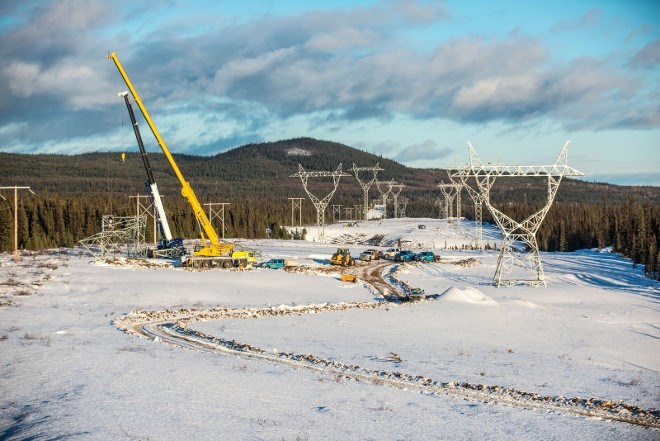The provincial government has selected NextBridge Infrastructure LP, over Hydro One, to be the constructor of the critical East-West Tie transmission project in northwestern Ontario.
The government’s growing impatience with an Ontario Energy Board (OEB) review process prompted Greg Rickford, minister of energy, Northern development and mines, to “take decisive action” in selecting the construction consortium.
The project is a 450-kilometre, double-circuit transmission line between the Lakehead Transformer Station, outside Thunder Bay in Shuniah, to the transformer station near Wawa.
"Maintaining reliability and cost efficiency is a top priority for our government,” said Rickford in a Jan. 31 news release.
“The East-West Tie Line has long been identified as a priority project to provide a consistent supply of electricity that supports economic growth, job creation, and resource development in northwestern Ontario."
The OEB wanted the two competing bidders for the project to submit their all-in costs for the stalled regional transmission line project by Jan. 31.
The Crown regulator of the province’s electricity and natural gas sector said it couldn't render a decision on who’s going to get the job of building the power corridor around the north shore of Lake Superior until it can look at the comparative costs.
The board issued a Dec.20 order giving NextBridge Infrastructure LP and Hydro One until Jan. 31, 2019 to submit a “not-to-exceed” project price before it will issue a decision.
In 2013, Queen’s Park selected Upper Canada Transmission, operating as NextBridge Infrastructure LP, to do the design and engineering work. But the province didn't grant approval to the construction consortium to start construction.
When project cost estimates began to balloon past $700 million in 2017, then-Energy Minister Glenn Thibeault allowed Hydro One to submit a bid proposal. The matter was referred to the OEB to make a ruling.
But after holding hearings in October, the board further delayed, stating it would select one of the two applicants by the end of 2018.
Regional leaders and Rickford had urged the board to move expeditiously.
"Unfortunately, the Ontario Energy Board's review process has taken longer than expected, putting the timely construction of this necessary project at risk and potentially increasing costs for electricity customers,” added Rickford in his statement.
"NextBridge is the right choice to quickly and efficiently complete the East-West Tie Line. NextBridge has finished the preliminary work necessary to complete the project, it has the support of local communities and First Nation and Métis partners, and the project sets in motion opportunities to create local employment for over 200 Indigenous people.
"Moving forward with the East-West Tie Line will support economic growth in northwestern Ontario, it is another signal that Ontario is Open for Business, and it connects northwestern communities and Indigenous people with immediate and future opportunities for good, local jobs.
"I look forward to continuing to work with NextBridge, the Ontario Energy Board, and local communities and Indigenous partners to ensure this necessary project is completed in a timely manner."
The decision effectively ends Hydro One’s bid to build the Lake Superior link.
"We are very disappointed with this outcome," said Greg Kiraly, chief operating officer of Hydro One.
"We would like to thank the stakeholders, community members and Indigenous partners who welcomed us through our consultations over the past year.




